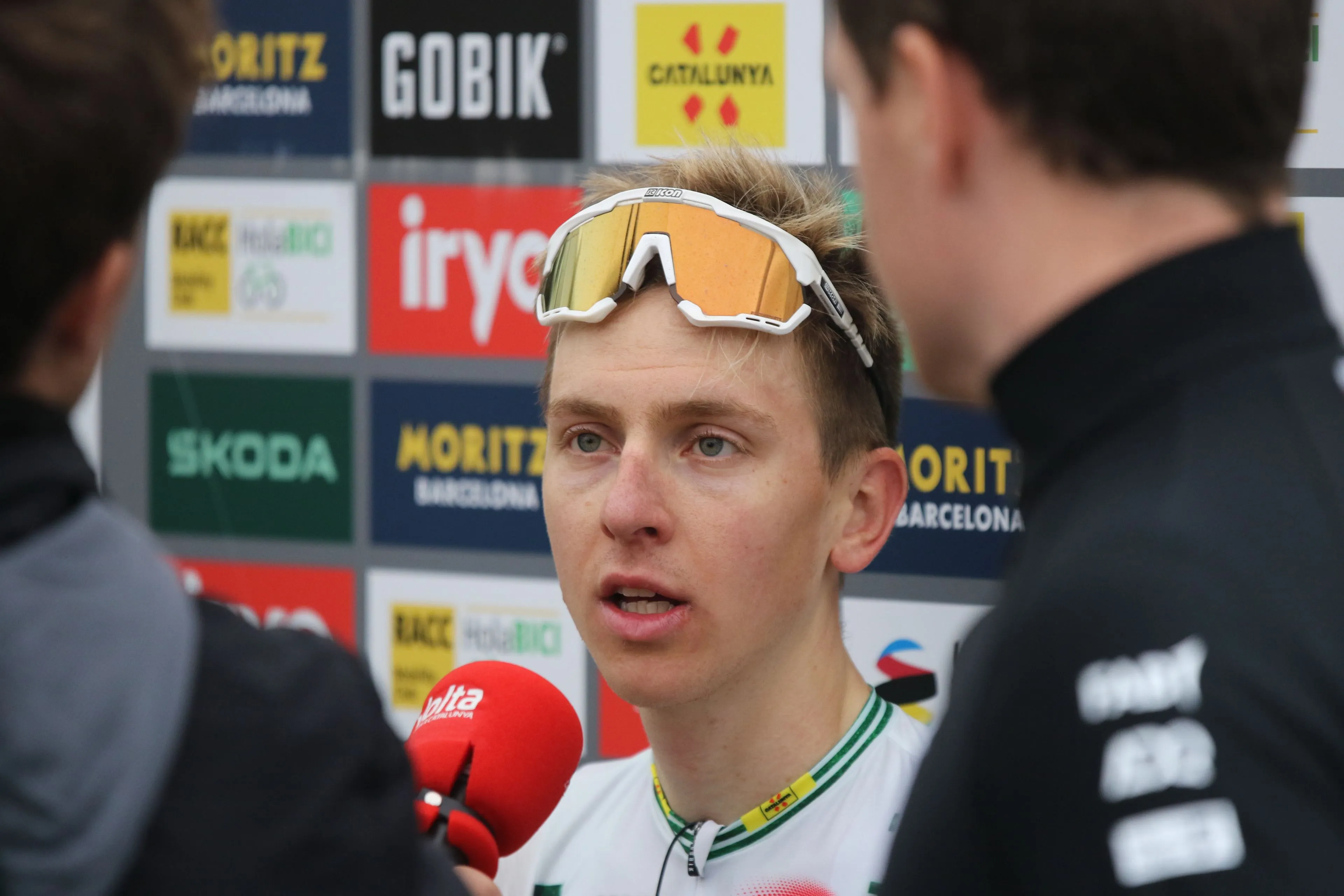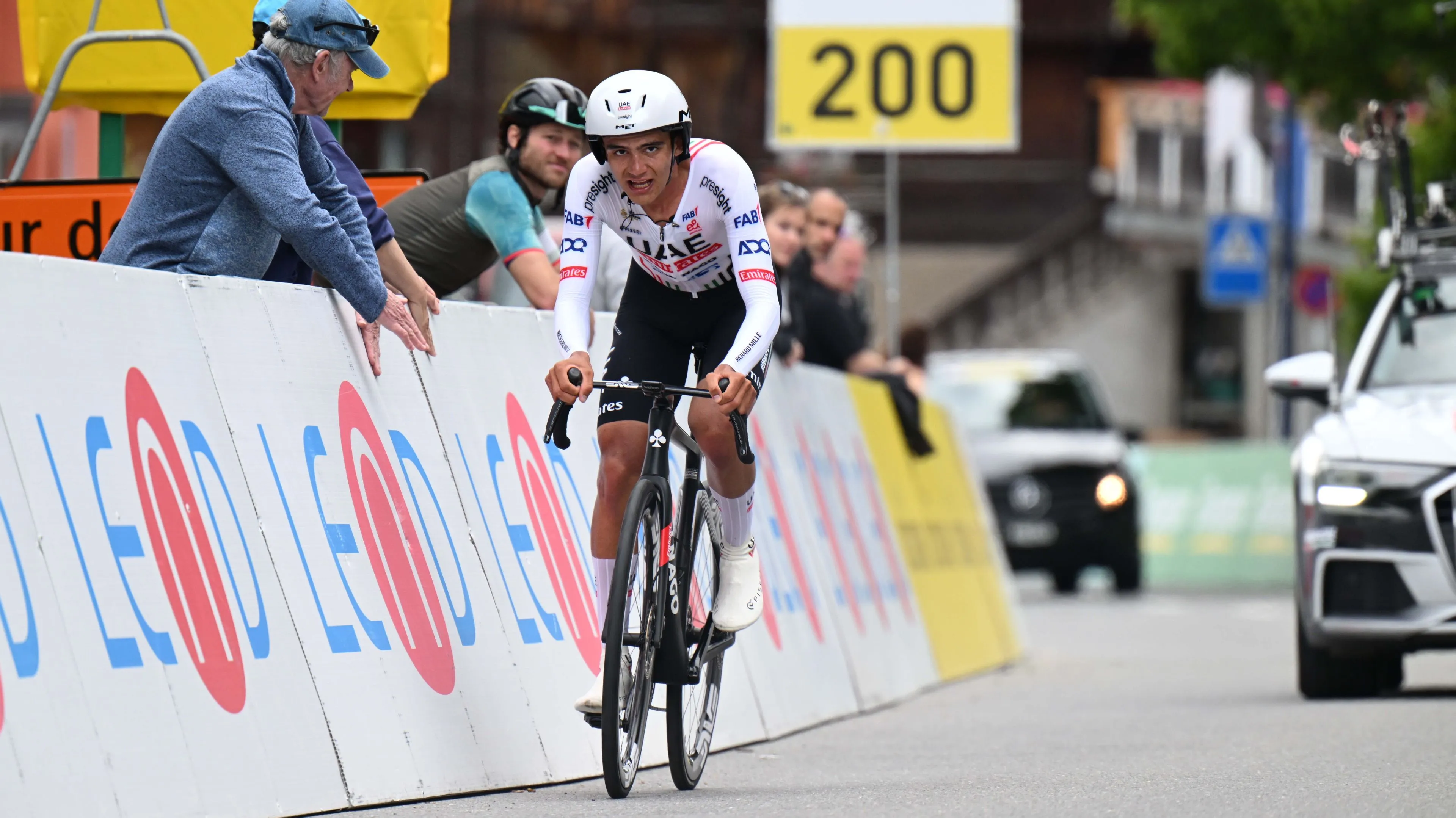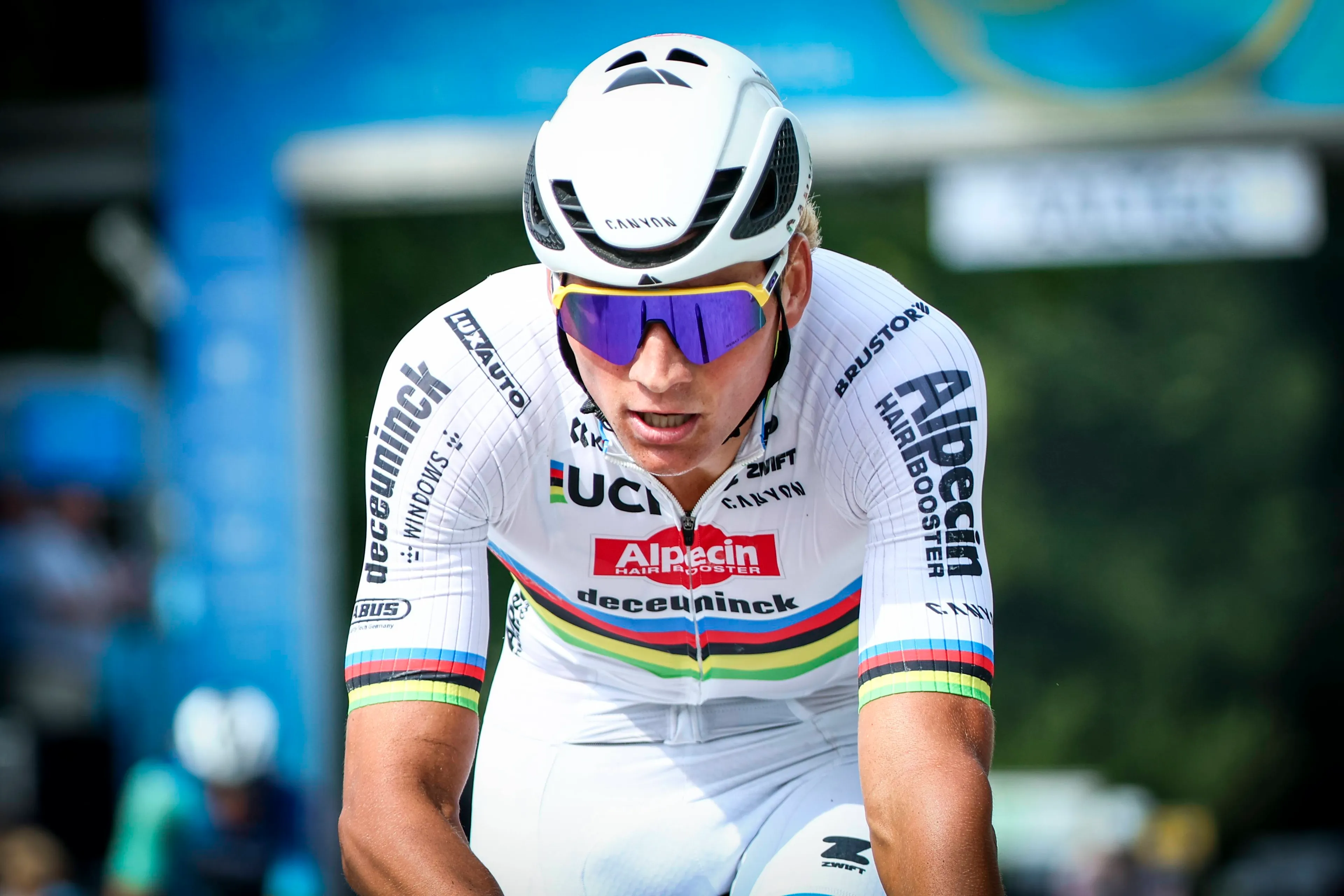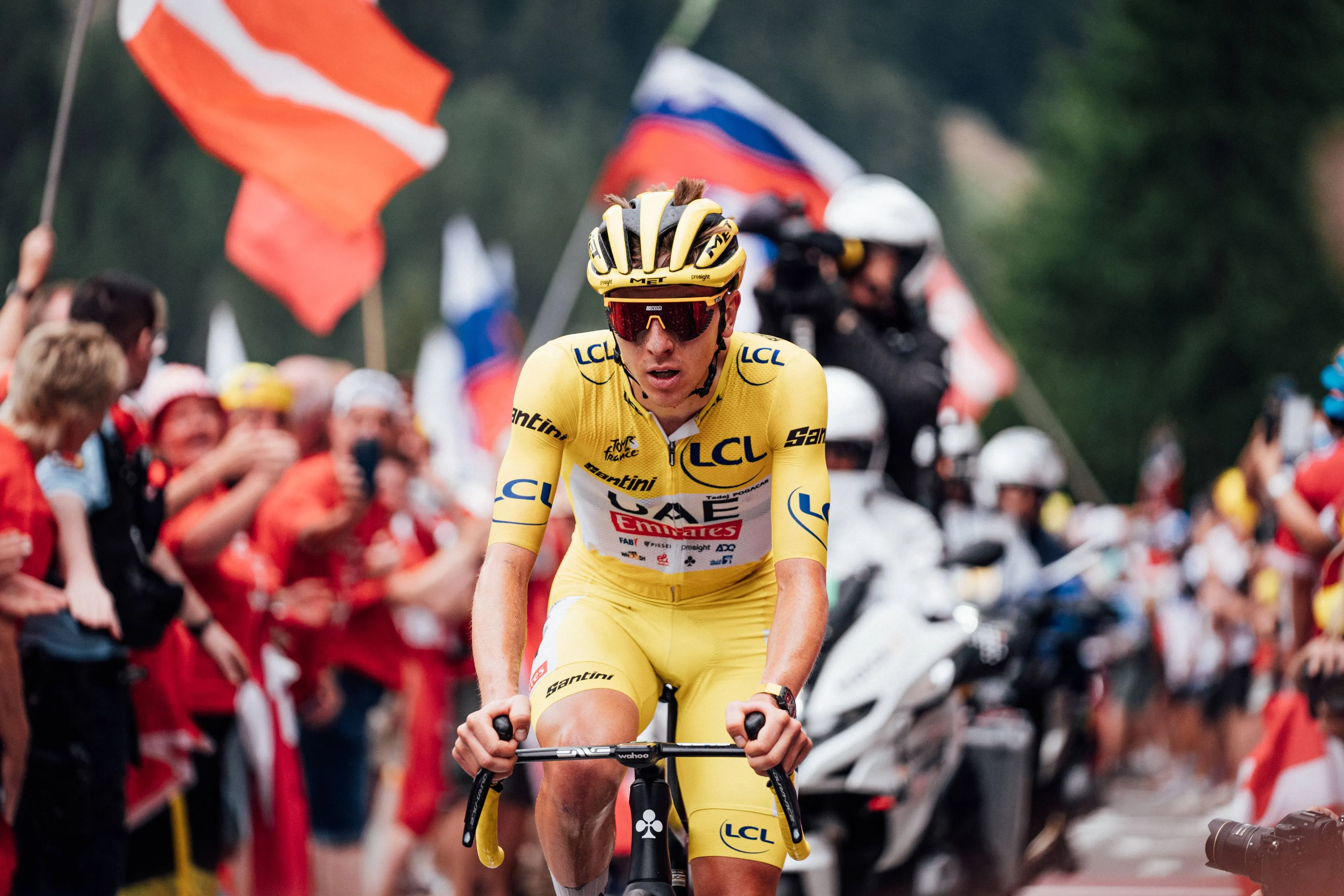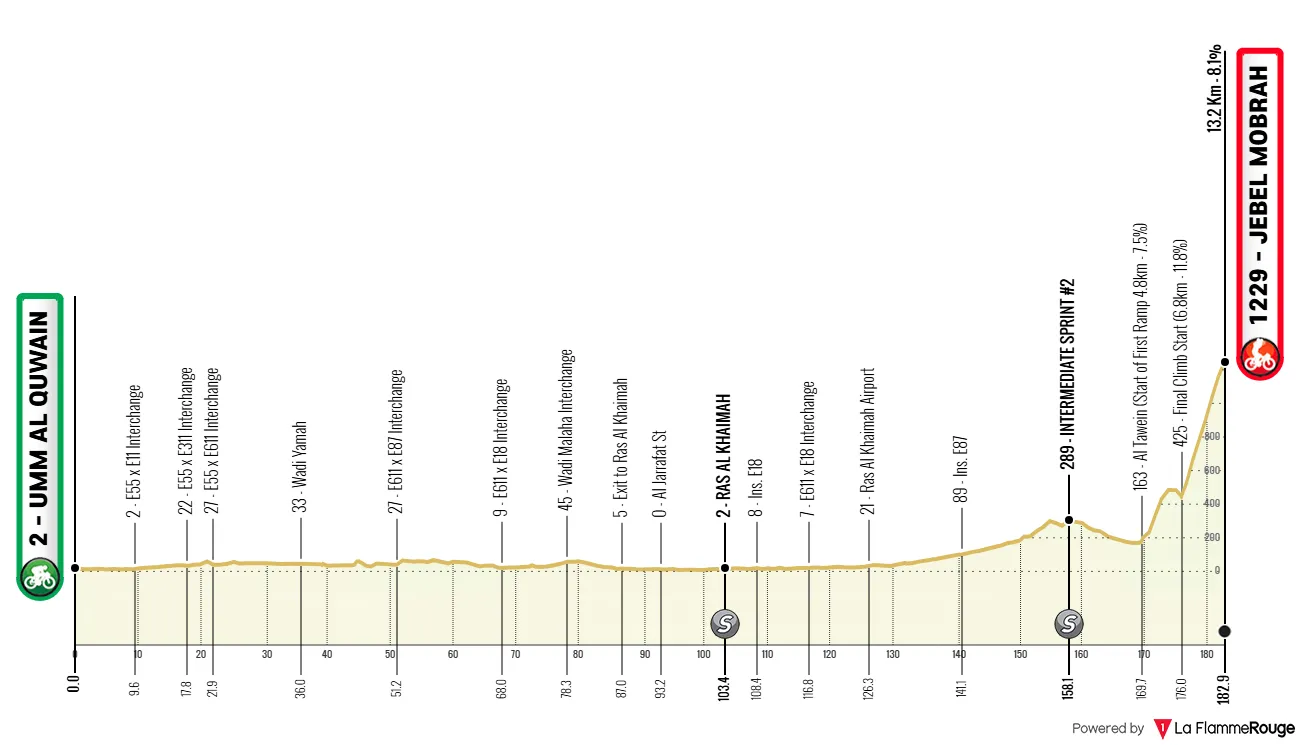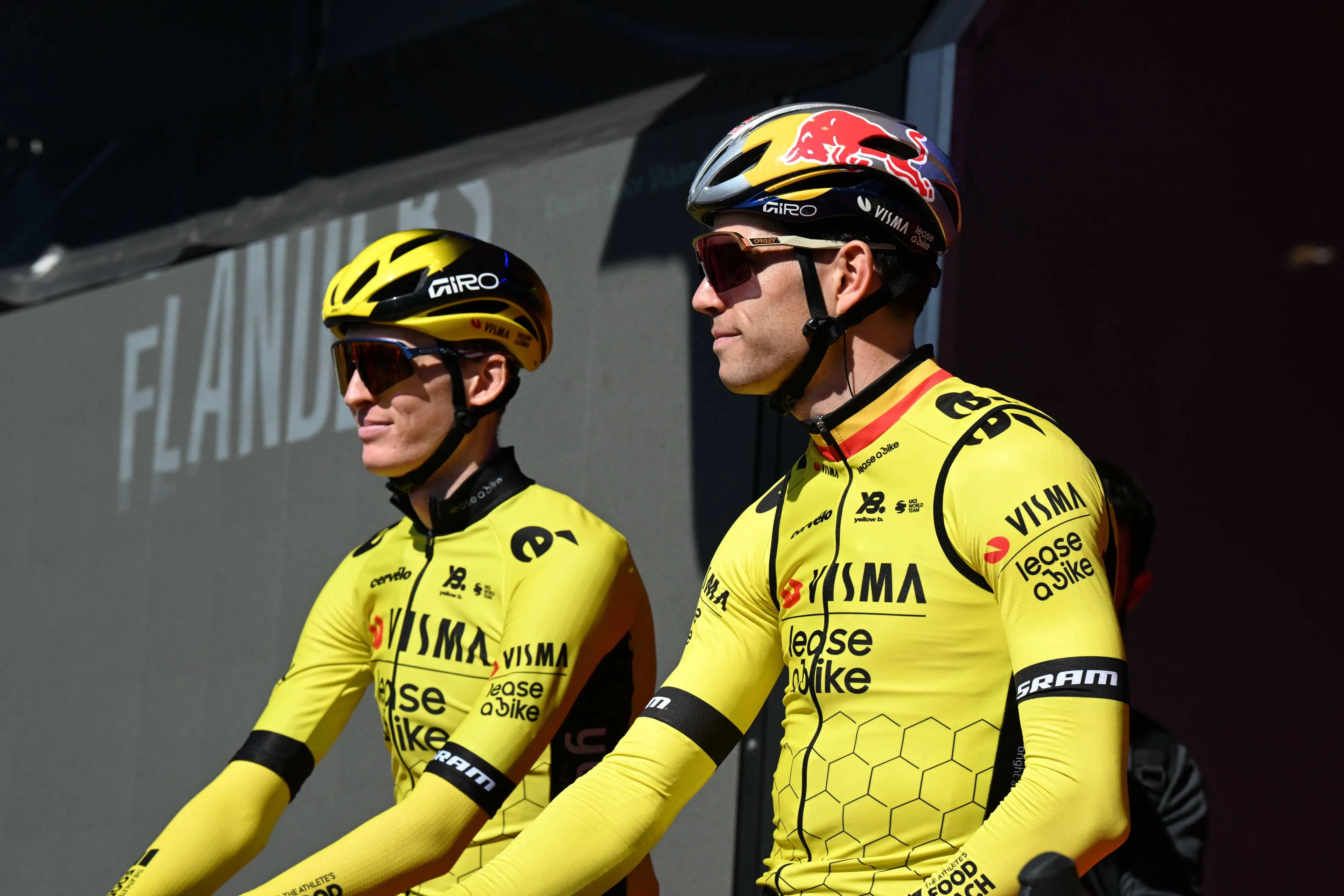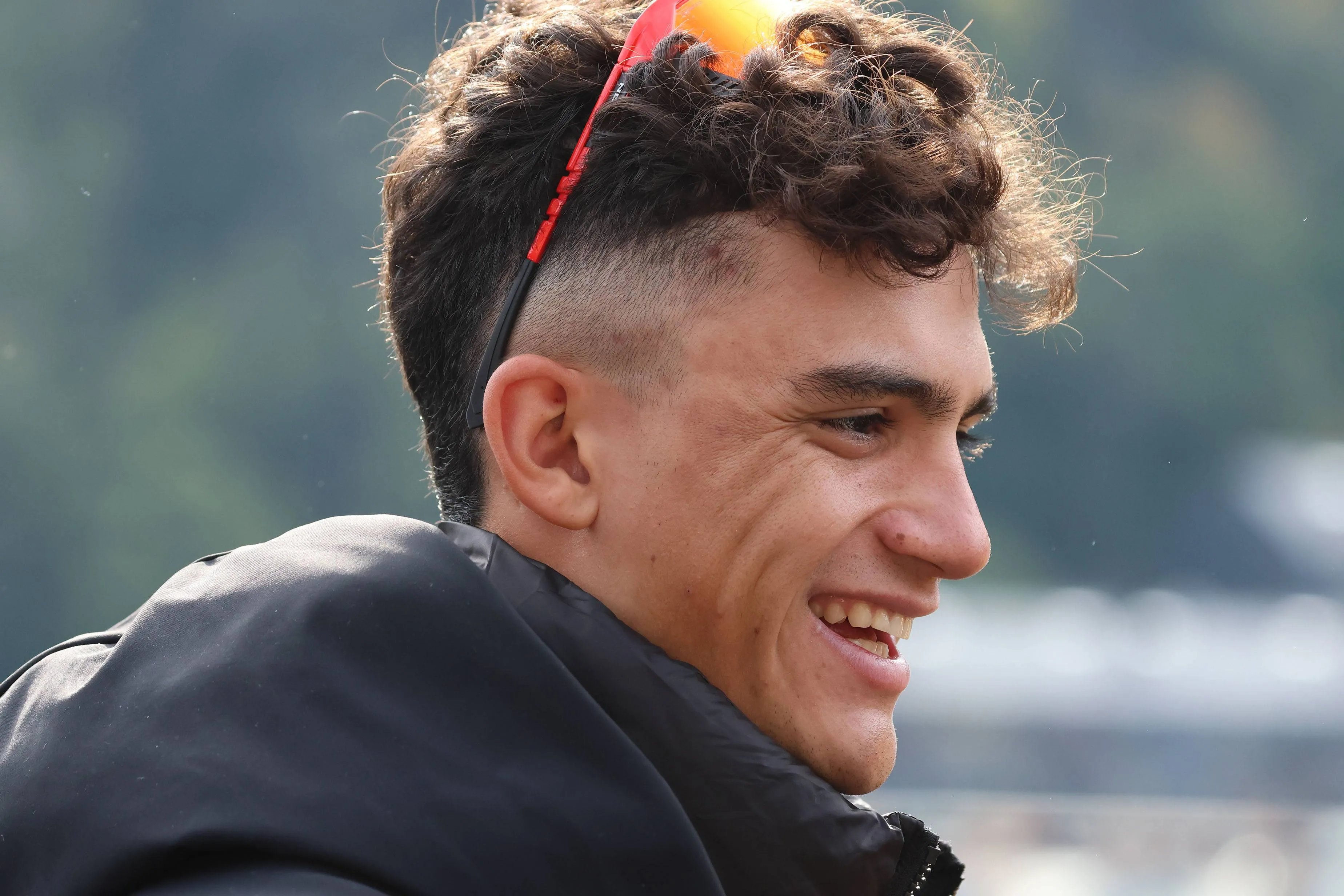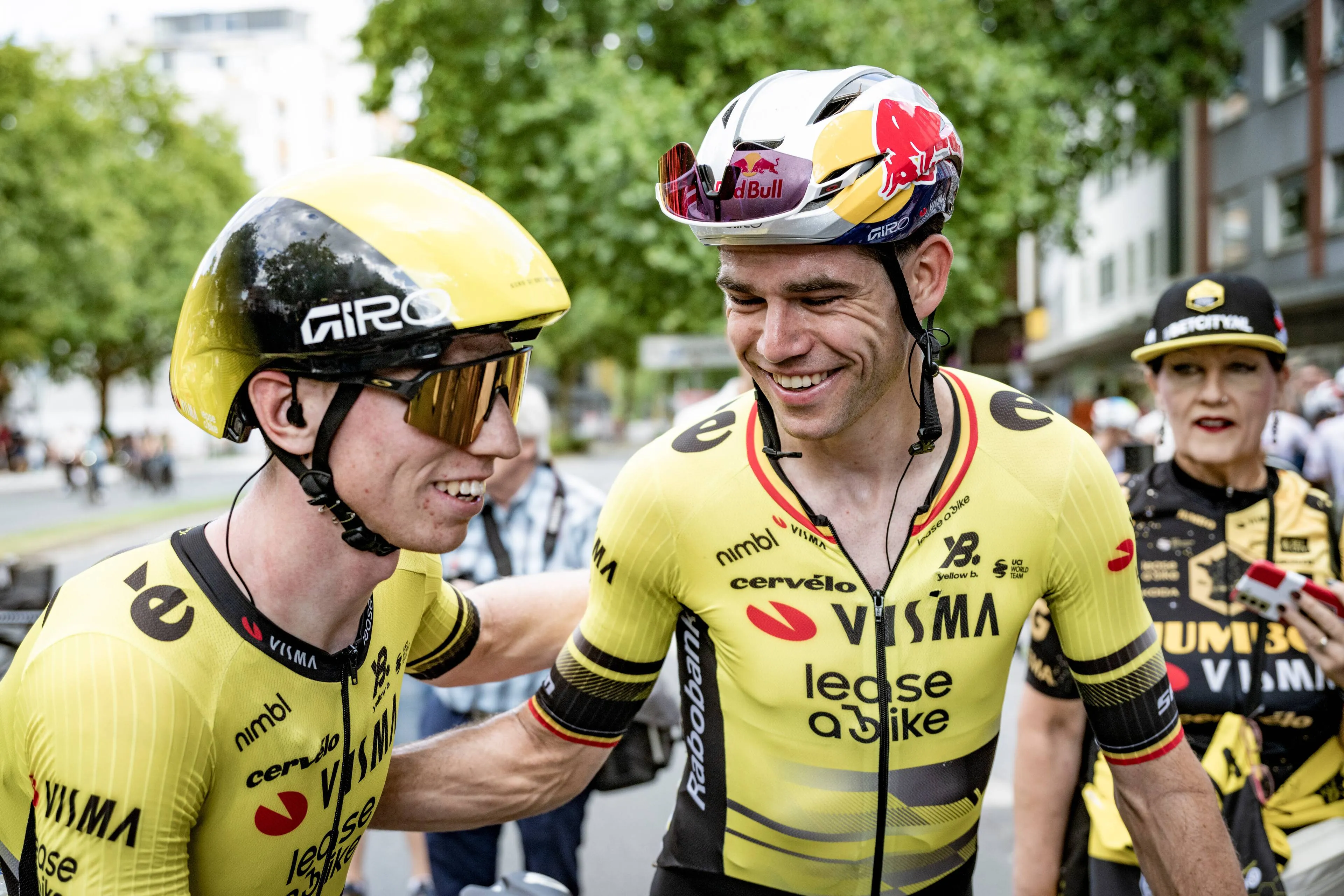ANALYSIS: Is Tadej Pogacar About to Complete Cycling’s Greatest Ever Season?
CyclingTuesday, 17 September 2024 at 10:34
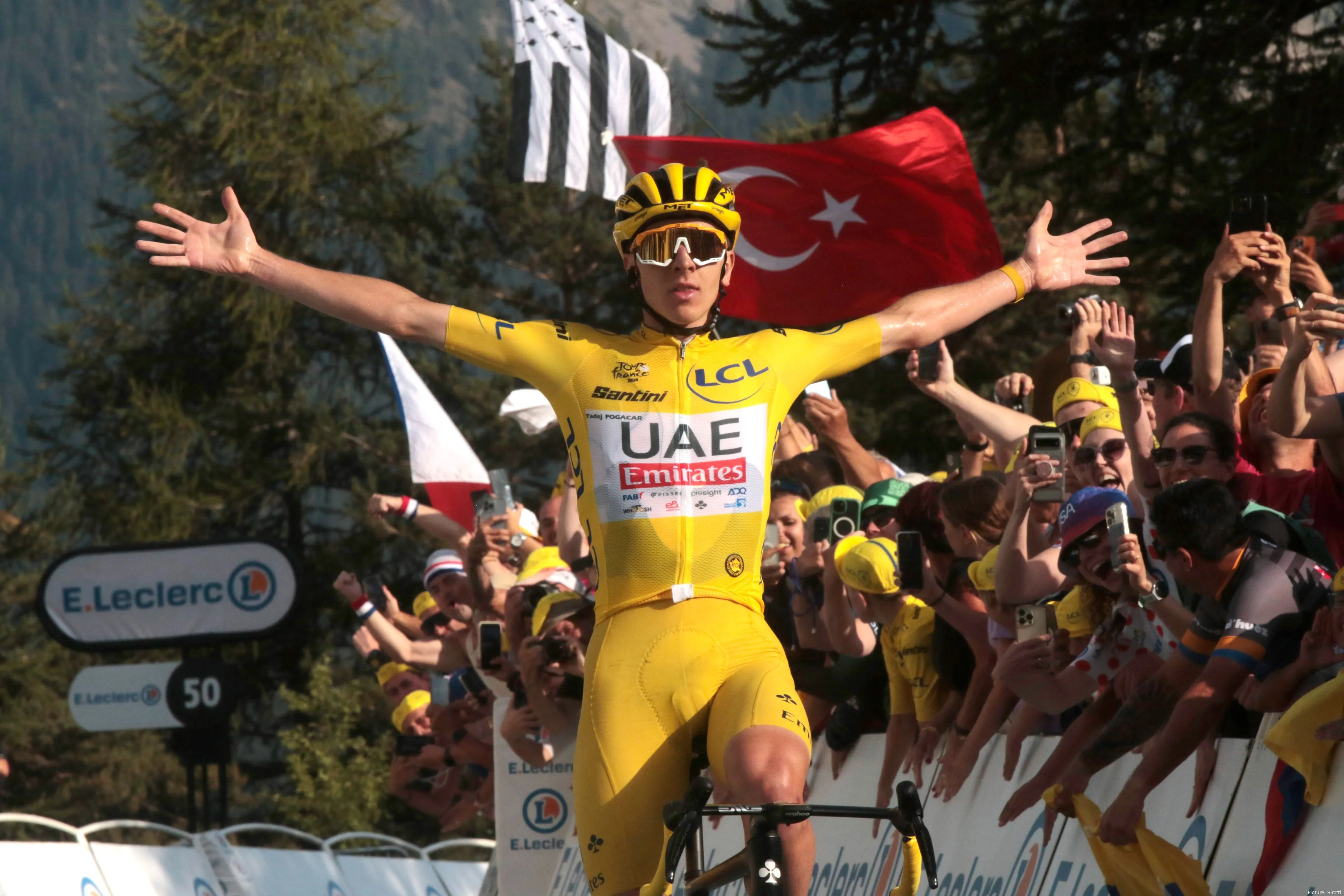
In Quebec on Friday, the cycling world witnessed a rare
sight: Tadej Pogacar denied victory. Yet, as Sunday rolled around and the GP de
Montréal unfolded, the Slovenian cycling star once again showcased why he is
widely considered the number one rider of his generation. Heading into the 2024
World Championships in Zurich with the Montreal win under his belt, Pogacar is
in formidable form, ready to conquer once again.
After taking nearly two months off following the Tour de
France in July, Pogacar's return to racing sends a clear warning to his
competitors. Despite the rest period, he remains in the kind of shape that saw
him dismantle his rivals in both the Giro d'Italia and Tour de France earlier
in 2024. His extraordinary Giro-Tour double was a feat no rider had managed
since Marco Pantani in 1998. Pogacar's dominance this season positions him to
potentially make history, and should he don the rainbow jersey later this
month, it would cement what could arguably be the greatest season ever achieved
by a cyclist.
Read also
With such lofty possibilities, it begs the question: who
else in cycling history has had a season that rivals Pogacar’s phenomenal 2024?
Eddy Merckx – 1972
One name inevitably comes to mind when discussing dominant
cycling seasons: Eddy Merckx. Known as "The Cannibal" for his
relentless pursuit of victory, Merckx had several awe-inspiring seasons, but
his 1972 campaign stands out as one of the finest. That year, Merckx claimed
victory in both the Giro d'Italia and the Tour de France, similar to Pogacar's
feat this season.
The 1972 season also saw Merckx win, Milan-San Remo, Liège-Bastogne-Liège, the Giro di Lombardia,
and La Flèche Wallonne and dominate numerous other events. His complete
mastery of the sport across a variety of races makes his 1972 season one of the
greatest in the history of cycling. If Pogacar captures the rainbow jersey in
Zurich, it would be difficult to overlook the parallels to Merckx's mythical
1972.
Read also
Bernard Hinault – 1982
Another cycling icon whose name belongs in the conversation
is Bernard Hinault, a man whose nickname, "The Badger," reflected his
aggressive and tenacious riding style. Hinault had an illustrious career, but
the 1982 season stands out as a highlight. Like Pogacar in 2024, Hinault
completed a Giro-Tour double, asserting his dominance over the peloton and
demonstrating his versatility as a rider.
What made Hinault’s season truly remarkable was his ability
to dominate across the entirety of the season, not just in Grand Tours. In
addition to his victories at the Giro and Tour, Hinault added wins in
prestigious races and was narrowly denied victory in
Paris-Roubaix. While he didn’t win the World Championship that year, Hinault’s
1982 season was one of complete mastery and strength, reminiscent of Pogacar’s
all-around brilliance.
Read also
Fausto Coppi – 1949
Fausto Coppi, a name synonymous with cycling legend,
delivered an unforgettable season in 1949. During this period, Coppi won both
the Giro d’Italia and the Tour de France, much like Pogacar’s feats in 2024.
The Italian rider was particularly dominant in his home race, the Giro, where
he took the overall classification, the King of the Mountains jersey, and
multiple stages.
At the Tour de France, Coppi's performance was no less
impressive. He rode away from his competitors in the mountains and finished
nearly 11 minutes ahead of his nearest rival. Not content with simply
dominating the Grand Tours, Coppi also took home the victory at the Giro di
Lombardia, one of cycling’s Monuments, solidifying his place as the preeminent
rider of his time.
Coppi’s 1949 season is remembered as a hallmark of
excellence and a turning point in the sport. Like Pogacar, Coppi was revered
for his ability to win across all terrains and for his incredible consistency
throughout the season.
Read also
Stephen Roche – 1987
In terms of historical comparisons, Stephen Roche’s 1987
season is one of the few that can match the magnitude of Pogacar’s achievements
in 2024. Roche’s season is legendary because of the rare “triple crown” he
achieved that year: winning the Giro d’Italia, Tour de France, and the World
Championship.
Roche’s victories were not without drama. In the Giro, he
won by 3:40 minutes, one of the narrowest margins in the race’s history. At
the Tour de France, he cemented his place in cycling history with a stunning
performance on La Plagne, a high-altitude finish where he dramatically clawed
back time on the leaders. To top it all off, Roche claimed the World
Championship title in Austria, making him only the second rider ever (after
Merckx) to win the Giro, Tour, and World Championships in the same season.
This incredible feat stands as one of the most prestigious
accomplishments in cycling, and should Pogacar win the rainbow jersey later
this month, his season would undoubtedly invite comparisons to Roche’s
phenomenal 1987.
Read also
Marco Pantani – 1998
While Pantani’s career was marred by controversy, his 1998
season remains one of the most remarkable displays of climbing prowess the
sport has ever seen. Pantani, like Pogacar, achieved the Giro-Tour double,
winning both races in a season that saw him devastate his rivals on the
steepest of climbs.
Pantani's ability to dominate in the mountains and to
deliver knockout punches during the most challenging stages of both the Giro
and the Tour captured the imagination of cycling fans. His aggressive racing
style, attacking on every opportunity, made him a fan favourite and added to
the legend of his 1998 campaign. Like Pogacar, Pantani’s season was defined by
his willingness to attack and take risks, often leading from the front and
pushing the pace at every opportunity.
Conclusion: Can Pogacar Seal His Place in History?
As Pogacar heads into the World Championships, there’s no
denying the historic nature of his 2024 season. From his unparalleled Giro-Tour
double to his recent triumphs in Canada, he has solidified himself as the most
dominant rider of the modern era. Should he claim the rainbow jersey in Zurich,
he will have etched his name among the greatest seasons in cycling history,
comparable to legends like Merckx, Hinault, Coppi, and Roche.
claps 3visitors 3
Just in
Popular news
Latest comments
- When you join Ineos , learning , time , no pressure go out of the windowabstractengineer18-02-2026
- The UCI screws up againcaptmike18-02-2026
- No matter what people say - I'll watch it. And I bet all the complainers will do it too....averagecyclist18-02-2026
- Exactly what I'm thinking about it. Moreover Van Glis had a lot of time to rethink his situation but decided to stay where he was.averagecyclist18-02-2026
- Soler must be pissed at that
 leedorney18-02-2026
leedorney18-02-2026 - Completly agree, Jan was in front of van gils, following Pidcock wheel, it was Van gils who tried to force his way through Jan and the barriers. Are they blaming Jan because he belongs to the richest team that win a lot?
 maria2024202418-02-2026
maria2024202418-02-2026 - Clickbait title, not reality-based. Yawn.itsent18-02-2026
- lame, but probably correctantipodeanpedalfan18-02-2026
- Van Gils rode like wanted to get crashed or way too over confident that he was going to overtake Jan before getting pinched. It was obvious were Jan was going/had to go and MVG had the whole road to give an inch so he would have a chance to overtake on the rightjad2918-02-2026
- Double book this showing with the Melania documentary and you might get 100 people to see it...total !frieders318-02-2026
Loading
6 Comments

